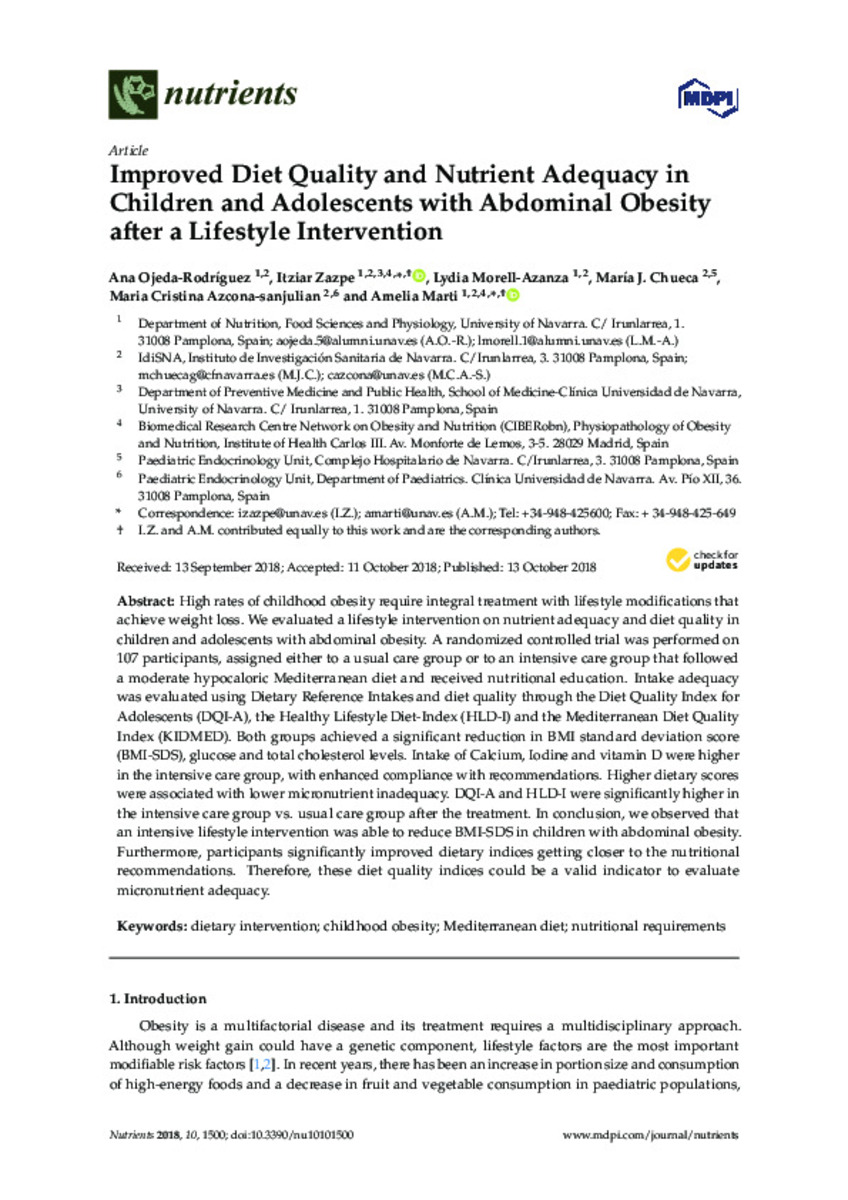Improved diet quality and nutrient adequacy in children and adolescents with abdominal obesity after a lifestyle intervention
Keywords:
Dietary intervention
Childhood obesity
Mediterranean diet
Nutritional requirements
Note:
This article is an open access
article distributed under the terms and conditions of the Creative Commons Attribution
(CC BY) license (http://creativecommons.org/licenses/by/4.0/).
Citation:
Ojeda-Rodríguez, A. (Ana); Zazpe, I. (Itziar); Morell-Azanza, L. (Lydia); et al. "Improved diet quality and nutrient adequacy in children and adolescents with abdominal obesity after a lifestyle intervention". Nutrients. 10 (10), 2018, 1500
Statistics and impact
0 citas en

Items in Dadun are protected by copyright, with all rights reserved, unless otherwise indicated.








